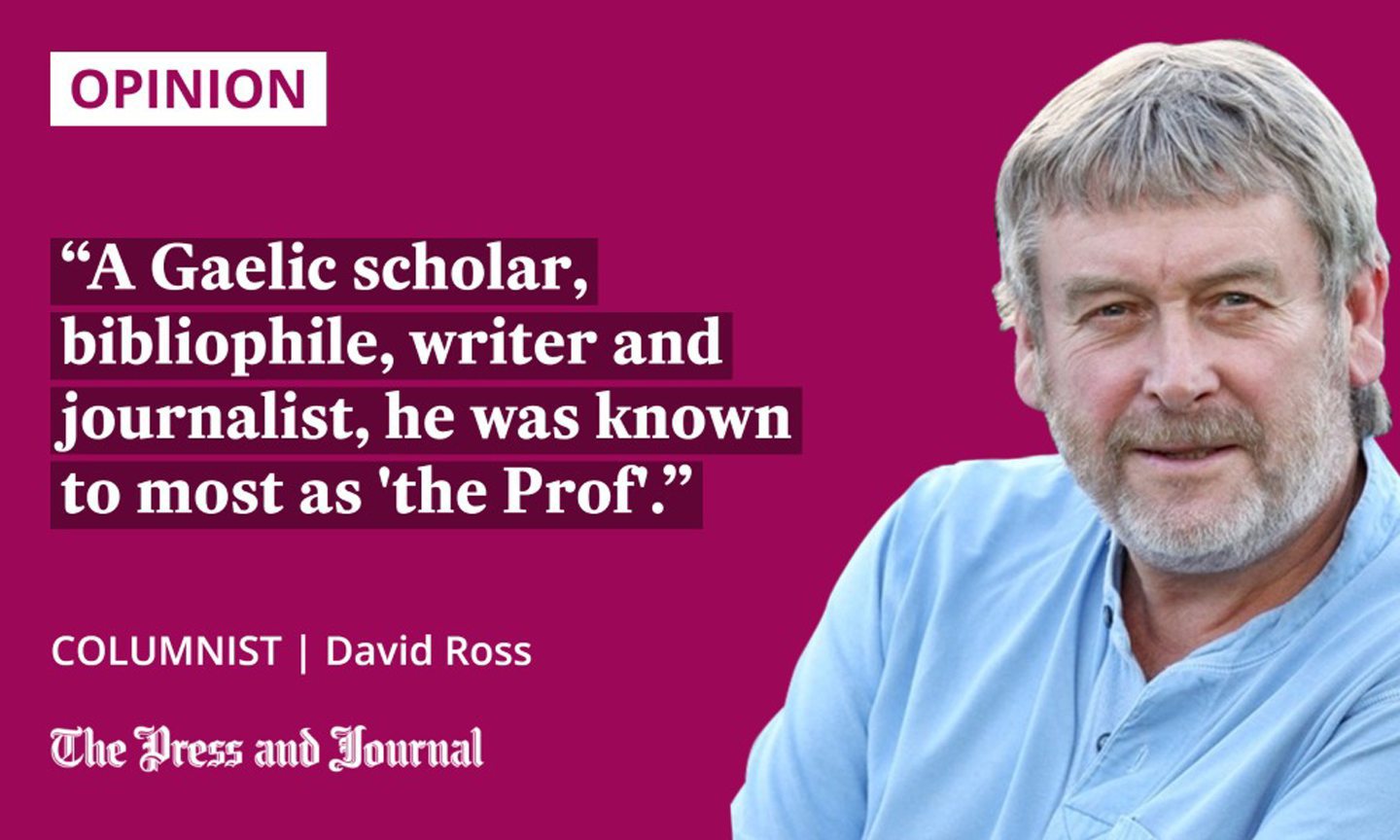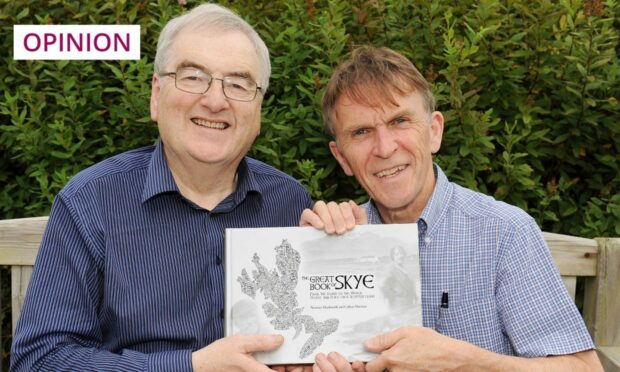Skye buried one of its own a couple of weeks ago.
Norman Macdonald (75) had a special place in the life of the island. A Gaelic scholar, bibliophile, writer and journalist, he was known to most as “the Prof”.
He was born in the crofting township of Drynoch, and brought up in the neighbouring Satran. He went on to study at the University of Aberdeen.
He spent 10 years teaching Celtic and Scottish studies at the University College of Cape Breton in Nova Scotia, entitling him to use the academic title of professor. But the chair he was to occupy for most of his working life was in the BBC office and studio in Portree, broadcasting in Gaelic and English, reporting the news of the day, and sometimes the news of centuries past.

He could have an unorthodox approach to newsgathering. There was the memorable occasion when he disarmed Dame Ellen MacArthur. In June 2006, the record-breaking, round-the-world solo yachtswoman was granted the Freedom of Skye and Lochalsh. It was said she hated press intrusion into her private life.
When she appeared at a press conference in Portree to mark her honour, it seemed initially that she had taken her negative view of journalists north with her. But, rather than being cross-examined, she listened as the Prof took over. He shared with her his research into her great great-grandfather’s family, who had come from Luib on the east side of Skye.
She had known that he and a brother left the island at the end of the 19th century for Belper in Derbyshire to work in the mills. They then opened a grocery shop. But the Prof filled in an important blank.
He presented Dame Ellen with an extract from the proceedings of the 1892 Royal Commission into deer forests in the Highlands and islands, when it met in Broadford. One of those who gave evidence to the commission was a “Donald MacArthur” from Luib.
He was asked if he had ever been a “yachtsman”. He hadn’t, though he had been at sea for two years “before the mast”. He then had come home and had been fishing, mostly “about Loch Hourn and Loch Scavaig… and anywhere about the west of Sleat”. But his livelihood had been threatened by east coast fishermen.
Rather disarmed, Dame Ellen was delighted to hear of this great great-granduncle. She said: “For years, when I have been asked whether my family had any connection with the sea, I had to say no: that I belonged to a place as far away from the sea as you can get, and that I had started sailing in a pond. But now I know this is where I get my seafaring gene.”
It was “pure Prof”. He and Dame Ellen kept in touch.
‘A dictionary of national biography’
This same Donald MacArthur featured in another major project which the Prof was to undertake after retiring from the BBC. He co-authored The Great Book of Skye: From the Island to the World – three extraordinary volumes which record the lives of those who have been part of the island’s story.
His partner in the work, Cailean Maclean, said he had made two significant contributions to the project, “first to encourage Norman to start writing, and second and more importantly, getting him to stop!”
Crofters and ministers, shinty players, teachers, doctors, sea captains, and many others feature, around 4,000 in all
To qualify for entry into the Great Book, the subjects had to be dead. It had to be known when they died, and they had to have had a connection to Skye. Agatha Christie is in it because she spent time in Broadford. But Cú Chulainn, the great warrior of Celtic mythology, only makes it into the appendix because nobody knows when he died, or indeed whether he actually existed.
Most entries are rather less exotic. Crofters and ministers, shinty players, teachers, doctors, sea captains, and many others feature, around 4,000 in all.
The prolific Raasay-based author Roger Hutchinson, in his column in the West Highland Free Press, described the Great Book as “a dictionary of national biography whose nation is the island of Skye.”
Journalists should be immersed in their communities
Prof Norman was immersed in his local community, as journalists should be. Public accountability of the powerful at a local level is as vital to any functioning democracy, as it is nationally.
BBC journalists striking over cuts to local radio services #nuj pic.twitter.com/sN4zLWFTI5
— Sharuna Sagar💙 (@Sharunatv) March 15, 2023
It is, therefore, alarming to read of the BBC’s proposals to reduce local news broadcasting in England, which have led to strike action by the National Union of Journalists. The plans involve recorded news bulletins, as well as sharing output across regional areas after 2pm on weekdays and for the whole of weekends.
With all the troubles they face, it says much about the instincts of those who control the BBC that that’s where they would look to make savings. This strategy would not be welcome on this side of the border.
David Ross is a veteran Highland journalist, author and a supporter of Community Land Scotland












Conversation